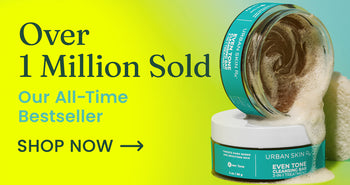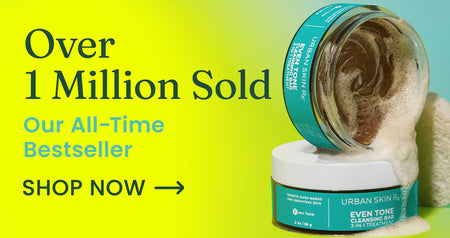The 7 Best Anti-aging Ingredients & How to Pick Your Products

There are so many great things about getting older! Whereas young-you was probably always subject to your parents’ schedules and approval, you get to set your own schedule as an adult. You get to decide how you spend your time and who you spend it with. You can eat what you like, sleep when you want, and as long as you’re taking care of your responsibilities and living within your means, the world is pretty much your oyster.
As you age, you get all sorts of insight and wisdom to help guide you along the way, and you get to leave behind things like teenage breakouts and high school drama.
But adulthood is not without its challenges. There are taxes, for one, and bills, not to mention suddenly being the one in charge of all the little things you used to rely on your parents to take care of, like buying groceries and remembering your Great Aunt’s birthday. And there’s always that one potentially huge downside: your body starts to age, too.
How Does Aging Impact Skin?
Even with teenage hormones causing relentless breakouts, when you’re younger, your skin tends to bounce back more easily, and when it’s clear — it’s clear in a way you’re going to miss as you round out your twenties. While we’re all for aging gracefully and appreciating our bodies and faces at all points of our lives, it can start to get to you when you still feel like you’re in your 20s.
Still, when you look in the mirror, all you can focus on is the appearance of fine lines in the corner of your eyes or between your brows. Dark circles, eye puffiness and dryness may also begin to cause problems.
We don’t want to call this skin “problems” because aging can be a beautiful process, and we don’t want to encourage you to seek the fountain of youth constantly. Not least because, news flash, there isn’t one. But it’s also essential to feel good in your skin, so if visible signs of aging are starting to get you down, here are some things to look for when selecting anti-aging skincare products.
The Best Anti-Aging Ingredients
There are so many skincare products on the market advertised to help you turn back the clock, and it’s hard to know which ones are going to work! The best way to get a good indication of how effective a product will be is to better understand the ingredients and formula.
So let’s talk about some of the most effective active ingredients that often go into anti-aging cream and other products, so you know what to look for.
Glycolic Acid
Alpha Hydroxy Acids are well-known for their abilities as chemical exfoliators. Glycolic Acid, particularly, is one of the AHAs that’s able to penetrate your skin most deeply due to the small size of its components. Glycolic Acid will help slough off dead skin cells and improve the appearance and texture of your complexion all around.
Glycolic Acid may also help support collagen and elastin production, which are helpful when it comes to keeping your skin plump, tight and youthful. Glycolic Acid is perfect for daily use if you’re trying to keep your budding age lines from getting the best of you sooner than you’d like.
Like most AHAs, Glycolic Acid can be rough on your skin, so be sure to work something like our Clear and Even Tone Clarifying Glycolic Pads into your routine gradually, and be generous with your moisturizer after using. It can also make your skin more sensitive to the sun, so don’t forget your SPF, too.
Lactic Acid
If you like the idea of an Alpha Hydroxy Acid, but your skin is sensitive, you might be worried about using something like Glycolic Acid on your skin, which is prone to giving even the most demanding skin type a run for its money. Or maybe you just know from experience that Glycolic Acid doesn’t play well with your skin.
If that’s the case, Lactic Acid might be the perfect option. It’s similar to Glycolic Acid in the way it works and the anti-aging effect it can have on your skin, but it tends to be a bit gentler on your skin than other AHAs. It will still make your skin photosensitive, however, so you can’t skip the sunscreen with this one, either.
Hyaluronic Acid
Unlike other ingredients that fall into the category of “acid,” Hyaluronic Acid isn’t a chemical exfoliant. Hyaluronic Acid is often used in intensive moisturizers because it’s a thirst-quenching ingredient that attracts water and helps your skin retain moisture.
Since the formation of wrinkles can be expedited by dry skin, finding an anti-aging wrinkle cream that keeps your skin hydrated and plump is crucial when it comes to fending off the visible signs of aging. Because Hyaluronic Acid attracts and traps water, rather than being the hydrating agent itself, it’s also important to be sure any cream or product that uses it has some additional thirst-quenching abilities.
It’s also not likely to result in any skin irritation or side effects because our body produces Hyaluronic Acid on its own! It’s a sugar that occurs naturally, although our bodies stop making it (gulp) around age twenty.
Niacinamide
Age lines aren’t the only thing that can start to age your appearance. If you struggle with irritation, the thing that makes you look less youthful than you’d like might just be the resulting redness. If you’re looking to even out your complexion and soothe your skin barrier, or if you’re looking to fight lingering redness or dark spots, Niacinamide is a great option for your skincare routine.
Niacinamide is gentle on the skin and can help calm irritation and reduce the appearance of dark marks. It’s great for evening out your skin tone, so if you’re worried that discoloration is making you look old, ahem, wise beyond your years, an anti-aging cream that includes Niacinamide will be the one for you.
Retinol
Retinol is a Vitamin A derivative that many people hail as the holy grail of anti-aging products. Retinol works to help speed up the rate at which your cells turnover or regenerate – so effectively, it’s creating an exfoliating effect for your skin.
As we age, all the processes our body runs to keep us healthy slow down a bit. When you were younger, exfoliating may not have been on your radar because your skin likely refreshed itself at a higher rate. As you age, cell turnover relaxes, leaving you with skin cells slightly longer than you used to hang on to them, which can make your complexion less bright.
Retinol speeds this process up, and so it’s not only great for brightening your complexion and fighting the natural effects of aging, but it’s also great for reducing the appearance of all sorts of skin issues, like blemish scars, blemishes or hyperpigmentation.
Retinol can be intense for your skin, so you should go slow when you start using it. Put it on in the evening after washing your face and before your night cream one or two nights a week until you’re sure your skin will tolerate it. You can work up to using it more frequently from there.
Salicylic Acid
Like many other ingredients, Salicylic Acid may not come to mind immediately as having anti-aging properties. Still, it’s a good idea to look for an anti-aging cream that includes this Beta Hydroxy Acid, or BHA. Salicylic Acid is especially great if you struggle with adult acne or if you’re still trying to manage oily skin.
As with other chemical exfoliants, Salicylic Acid works to resurface and refresh your complexion. There’s even some evidence that shows that Salicylic Acid has additional anti-aging properties, like its potential ability to improve collagen production, which tends to drop off as you age. It may seem strange if you’re used to Salicylic Acid only as an acne treatment. Still, anti-aging cream with Salicylic Acid can actually benefit your aging skin in various ways.
Vitamin C
Even if aging is a new concern for you, Vitamin C might already be a part of your skincare lineup. Products such as our Super C Brightening Serum can benefit your skin no matter your age, but if you don’t already use it, it’s worth considering including it in your skincare wishlist.
Vitamin C helps protect against damage from free radicals, which contribute to aging you more quickly. It’s also great for reducing the appearance of dark marks, so if you already have sun damage (get it checked by a dermatologist) and you’re worried it’s aging you, Vitamin C will be your new bestie.
How Else Do You Keep Your Skin Young?
In addition to finding a cream that supports aging gracefully with the right active ingredients, you might be wondering if there’s anything else you can do to try to keep your youthful glow no matter what your age. If the anti-aging cream you choose only contains one of the ingredients mentioned earlier, you can find other products with these ingredients and add them to your routine.
It’s also absolutely vital that if you haven’t been a religious sunscreen-wearer your whole life, that you step up to the plate now. Wearing SPF every day can go a long way toward keeping visible signs of aging from creeping up on you too quickly. Although the sun is warm and it’s so tempting just to spend all day laying out and getting a tan, protecting your skin from sunburn and damage is crucial for preventing visible signs of aging.
And while you should have started early, it’s never too late to improve your routine. Our SheerGlow™ Even Tone Daily Defense Mineral Moisturizer has SPF 30. Since you can moisturize and protect your skin from the sun in one easy step, there’s no excuse not to!
Additionally, it’s helpful to keep your diet in mind when keeping your skin looking healthy and vibrant. Ensuring you’re drinking enough water is important as is making sure you’re getting enough healthy fats into your diet. There was a time where diet trends tried to tell us that eating fatty foods made us fat, but that isn’t the case. Fat is part of a balanced diet, and fats like omega 3s are critical when it comes to keeping your skin healthy and happy.
In Conclusion
It’s important that you feel happy and confident in your body and skin, no matter your age. We firmly believe that your glow comes from within, so as long as you’re living your best life, you’re sure to shine!
But if you’re looking to try to keep your skin feeling and looking full and vibrant as long as possible, finding an anti-aging cream with one of these active ingredients can help.
Engagement Manager



